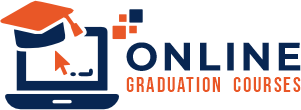If you’re interested in computers and technology, a Bachelor of Computer Applications (BCA) is a great choice. This course offers practical and theoretical knowledge to help you build a career in the IT field. Whether joining a regular college or opting for BCA Distance Education, understanding the subjects you will study is very important.
This blog will guide you through the complete list of BCA Course Subjects semester-wise, explaining what you can expect from this degree.
Table of Contents
What is BCA?
BCA (Bachelor of Computer Applications) is an undergraduate degree designed for students who want to enter the world of computers and software development. The course usually lasts three years and is divided into six semesters. Students learn programming languages, software development, networking, database management, and other important topics related to computer science.
Today, many students prefer BCA Distance Education because it allows flexible study schedules. You can learn from home while working or managing other responsibilities. Despite the learning mode,
Overview of BCA Course Structure
The BCA Course is divided into six semesters, each with subjects focusing on different aspects of computer applications and information technology. In addition to theory, students spend significant time in practical labs to develop coding and software skills.
This blend of theory and practical learning helps students gain the confidence to handle real-world IT problems. Let’s now explore the semester-wise BCA Course Subjects in detail.
Semester-wise BCA Course Subjects
Semester 1
In the first semester, students are introduced to the basics of computers and programming. This foundation is essential for understanding more complex topics later.
- Introduction to Programming: Learn the basics of programming languages and writing simple code.
- Mathematics for Computing: Focus on math concepts useful for programming and algorithms.
- Digital Electronics: Basic principles of digital circuits and logic.
- Computer Fundamentals: Understanding hardware, software, and computer architecture.
- Communication Skills: Helps improve writing, speaking, and presentation abilities.
Semester 2
The second semester focuses on data handling and object-oriented programming, along with organisational concepts.
- Data Structures: Learn how to organize and store data efficiently.
- Operating Systems: Study the functions and types of operating systems.
- Object-Oriented Programming (OOP) with C++: Introduction to OOP concepts like classes and objects.
- Organizational Behavior: Basics of workplace behavior and management.
- Practical Labs: Hands-on practice with programming and data structures.
Semester 3
The third semester introduces database management and networking concepts, which are essential for many IT jobs.
- Database Management Systems (DBMS): Learn how databases work and how to use SQL.
- Computer Networks: Basic concepts of networking and communication between computers.
- Software Engineering: Understand software development life cycles and methodologies.
- Web Technologies: Introduction to HTML, CSS, and JavaScript for website development.
- Practical Labs: Applying concepts learned in theory.
Semester 4
In this semester, students focus on advanced programming and multimedia applications.
- Java Programming: Study the Java language for building applications.
- Data Communication: Learn about data transfer methods and communication protocols.
- Multimedia Applications: Basics of multimedia content creation and editing.
- Numerical Methods: Mathematical techniques used in computing.
- Labs: Practice Java and multimedia tools.
Semester 5
The fifth semester brings in newer technologies and a chance to choose elective subjects.
- Python Programming: Learn Python, a popular and easy-to-learn language.
- Mobile Application Development: Basics of developing apps for smartphones.
- Cloud Computing Basics: Introduction to cloud services and infrastructure.
- Project Work: Minor project to apply knowledge practically.
- Elective Subject: Choose from topics like AI, digital marketing, etc.
Semester 6
The final semester focuses on advanced topics and practical experience.
- Cyber Security: Learn about protecting data and systems from cyber threats.
- Artificial Intelligence / Machine Learning: Optional advanced topics for interested students.
- Final Project: A Major project that involves solving real problems.
- Internship: Some colleges offer internships to gain industry experience.
- Seminar / Viva: Presentation and viva voce to evaluate understanding.
Types of BCA Degree Subjects
In a BCA degree, you will study different types of subjects that cover both theory and practical knowledge. These include core subjects like programming, databases, and networking, which form the foundation of computer applications.
Along with these, there are practical lab sessions to develop hands-on skills. You’ll also find elective subjects that allow you to specialise in areas like Artificial Intelligence or Mobile App Development.
- Core Subjects: The essential topics, like programming, databases, and networks, that every student must learn.
- Practical Subjects: Labs and projects to practice coding and software development skills.
- Electives: Specialised subjects such as Artificial Intelligence, Cloud Computing, or Mobile Apps, which allow you to explore your interests.
- Soft Skills: Courses like Communication and Organisational Behaviour to help you develop important workplace skills.
Advantages of Choosing BCA Distance Education
Many students today prefer BCA Distance Education because of its flexibility. If you cannot attend regular classes due to work or location, distance learning lets you study at your own pace. The curriculum and BCA Course Subjects remain the same, and the degree is recognised by most employers and institutions.
Distance education often provides recorded lectures, online study materials, and exams that can be taken at designated centres, making it easier to balance studies with other commitments.
How Practical and Theory Subjects Help You in BCA
BCA is not just about theory. Most of your learning happens in labs where you write code, build projects, and solve problems. Practical knowledge is crucial in computer applications because employers want candidates who can handle real tasks, not just know the theory.
Projects and internships are a big part of the course. They give you a chance to work on real problems, which prepares you for jobs after graduation.
Career Opportunities After BCA
After completing your BCA Degree Subjects, many doors open for you in the IT sector. Some popular career paths include:
- Software Developer: Writing and testing code for applications.
- Web Developer: Designing and maintaining websites.
- Database Administrator: Managing data storage and retrieval.
- Network Engineer: Handling computer networks and security.
- IT Support Specialist: Helping users solve technical issues.
If you want to study further, you can pursue MCA (Master of Computer Applications), MBA in IT, or professional certifications to boost your career.
Tips for Studying BCA Course Subjects Successfully
Stay consistent with your studies and practice coding regularly to build strong programming skills. Use online resources and work on projects to better understand the concepts.
- Stay Regular: Follow your syllabus and study daily to avoid last-minute stress.
- Practice Coding: Programming skills improve with practice. Use online coding platforms.
- Use Online Resources: Many free tutorials and videos can help explain tough topics.
- Work on Projects: Try to build small projects to strengthen your understanding.
- Develop Soft Skills: Communication and teamwork skills are important in any job.
Conclusion
Understanding the BCA Course Subjects is the first step toward a successful career in computer applications and IT. Whether you study through a regular college or choose BCA Distance Education, the subjects offer you a strong foundation in programming, databases, networking, and emerging technologies.
With dedication and practical learning, your BCA degree can lead to many exciting job opportunities or further studies. Start your journey with clear knowledge of what you will study, and enjoy building a bright future in the tech world!

